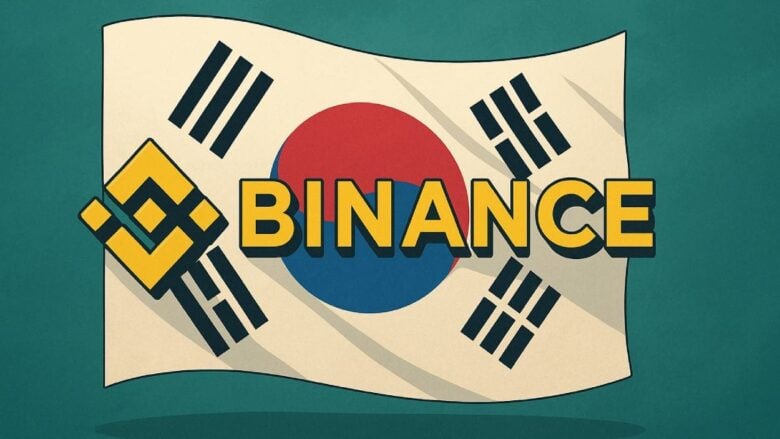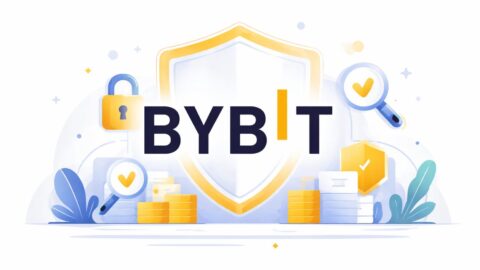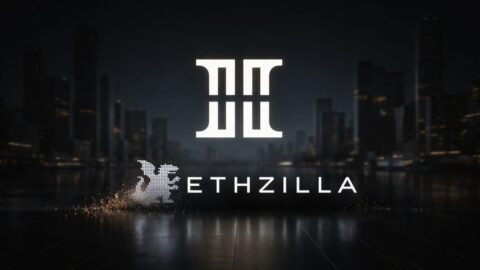Cryptocurrency giant Bybit is reportedly in early talks to acquire South Korean exchange Korbit, a move that could deepen its presence in Asia’s fast-growing crypto market.
Key Takeaways
- Bybit is in discussions to acquire Korbit, South Korea’s fourth-largest crypto exchange.
- Industry insiders suggest Bybit may start by buying SK Planet’s 31.5 percent stake in Korbit.
- Regulatory shifts in South Korea have made it easier for foreign exchanges to acquire local firms.
- Binance’s recent acquisition of Gopax is seen as a catalyst for further foreign entry into the Korean market.
What Happened?
Bybit, the world’s second-largest crypto exchange by trading volume, is said to be in preliminary acquisition talks with Korbit, one of South Korea’s oldest and most established crypto trading platforms. While both companies have refrained from confirming the discussions, industry reports and insider sources suggest that Bybit has already met with Korbit’s leadership to begin evaluating the deal.
Today, news broke that @Bybit_Official is pushing to acquire @Korbit_exchange [ Korean exchange ]
— ETH_APPLE🇰🇷 (@eth_apple) November 10, 2025
In reality, Korbit was acquired by NXC, the holding company of Nexon, back in 2017, so this new deal would essentially mark the beginning of acquisition negotiations between Bybit… pic.twitter.com/59cEzbuj4J
Regulatory Green Lights Fuel Foreign Acquisitions
South Korea’s evolving crypto regulatory environment has played a key role in attracting foreign exchanges. In September 2025, the Financial Services Commission (FSC) introduced new lending guidelines for centralized crypto exchanges (CEXs), signaling a more structured and open regulatory posture.
Earlier this year, Binance completed its acquisition of Gopax, South Korea’s fifth-largest crypto exchange, after receiving long-awaited approval from the Financial Intelligence Unit (FIU) to replace the company’s executives. That clearance came after more than two years of regulatory scrutiny and is now being viewed as a turning point for foreign exchanges eyeing South Korea.
Insiders believe that Bybit’s interest in Korbit was sparked by this shift. With the FIU showing more flexibility, companies like Bybit now see real potential in tapping into Asia’s second-largest crypto economy.
Korbit’s Ownership and What’s at Stake
Founded in 2013, Korbit is currently majority-owned by NXC, the parent company of gaming giant Nexon, which holds a 60.5 percent stake. The remaining 31.5 percent is owned by SK Planet, a subsidiary of SK Group. Sources familiar with the talks suggest Bybit could begin by acquiring SK Planet’s share, with eventual plans to take full control by purchasing NXC’s stake.
SK Group has been reportedly reducing its crypto-related exposure, making its Korbit stake a likely first step in any acquisition strategy. However, neither SK Planet nor NXC has issued any formal statement on the matter.
Korbit, which is headquartered in Seoul’s Gangnam district, has not confirmed the potential deal. The company told local outlet Maeil Business that it could not comment on “ongoing matters,” while a Bybit spokesperson similarly told CoinDesk that the rumors were “not within our knowledge.”
Competitive Landscape in South Korea
Bybit’s reported interest in Korbit reflects a broader consolidation trend in the Asian crypto sector. With domestic firms facing tight compliance restrictions, foreign companies are stepping in with deeper capital reserves and more scalable infrastructure.
South Korea’s current laws continue to bar traditional financial institutions from participating in digital asset trading, maintaining a strict separation between finance and industry. However, there is a growing recognition among regulators that foreign investment could enhance innovation and stability within the country’s crypto sector.
In addition, crypto lending rules have become more defined. As of late 2025, interest on crypto loans is capped at 20 percent, and lending is only permitted for tokens ranked in the top 20 by market capitalization and listed on at least three Korean won-based exchanges.
CoinLaw’s Takeaway
In my experience, when a regulatory gate opens in a high-demand market like South Korea, the rush to get in is swift and strategic. Bybit following Binance’s lead isn’t just a coincidence; it’s a sign that the global exchanges see massive untapped potential in South Korea. I found it particularly interesting that Bybit is eyeing SK Planet’s stake first, a smart move if they want to ease into full ownership without rattling the regulatory cage. If this deal goes through, it could put serious pressure on domestic platforms and set a new bar for foreign involvement in Korean crypto.


































































